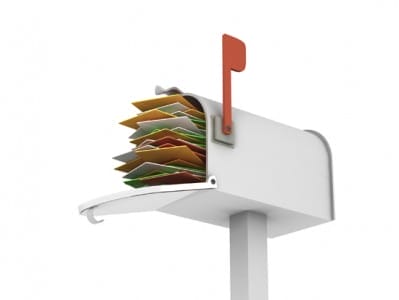The Power of the Network, Indeed
I was enjoying some downtime, reading your Spring 2010 issue on the airplane while traveling home to San Francisco from a business trip. While I was immersed in the article titled “The Power of ‘The Network’” (Spring 2010, pg. 30) I was politely interrupted by a woman sitting next to me (in the middle seat, poor thing) asking, “Excuse me, did you go to Wharton?” Coincidentally, we both had gone to Wharton undergrad, which is a bit rare in the Bay Area (most alums are MBA alumni; additionally, I find many professionals aren’t aware that there is an undergraduate program at Wharton, but I digress). She was class of 2005, I was class of 1996 and she just so happened to be looking to leave her retail consulting firm. Believe it or not, I work for a consultancy that has recently started a Retail Practice and I was looking to hire strategists/analysts.
Turns out, she accepted our offer and her first day was June 21. The Power of the Network!
Carol Citkovic, W’96
A Longtime Reader. And We Mean It.
I have been receiving the Wharton Magazine for some time now and I just wanted you to know that I greatly appreciate receiving this great publication.
I am an “old fogey” in my 93rd year, yet I am happy to be able to say that I recognize a nice publication when I see one. It sure is very fine to read it.
I don’t remember the year I graduated from Wharton, but at least I am happy to be able to tell all my friends that it is certainly a very fine place to get a really good education.
I tell them that I am speaking from “experience.”
Thank you again very much for sending me the Wharton Magazine.
William T. Schwartz, WEV’51
A Question
Thanks to Wharton Magazine, I just learned that “there’s a trash heap the size of Texas floating in the North Pacific” [“A Battle in the Pacific,” Summer 2010, pg. 10].
“Hmm,” I thought, “how deep is that trash heap? How deep is Texas? And how does the volume of that plastic ‘trash heap’ compare with the volume of water in the North Pacific?”
Said another way: “Ho-hum. Isn’t ‘cleaning it up’ just another grasping for something comparatively inconsequential to do with government grants and/ or foundation largess?”
Stuart Mahlin, WG’65
Editor’s Note: We asked Doug Woodring, WG’95, founder of Project Kaisei, to respond to Mr. Mahlin’s letter. His response is as follows:
The plastic problem on our planet is a real one, and some say it is worse in some ways than other materials, as many types of plastic last hundreds of years, and will continue to do ecological damage along the way. Unfortunately, the scale and capacity of the world’s waste management and recycling capabilities have simply not even come close to keeping pace with our level of consumption growth, and this is exacerbated in developing countries who are beginning to earn more, but whose infrastructure is not keeping pace. Much of their debris can make its way to rivers, streams, and then the ocean. Over 270 species have been shown to be impacted by plastic, but it is impossible to get a body count in the ocean. I was just at a UNEP meeting working on their 2011 yearbook. Out of over 80 global issues they chose between, they picked three to focus on in the coming year, and one of them is “Plastic in our Oceans and Rivers.” I suspect they would not put this at the forefront of their interest level if it was not an issue. In terms of government funding, we actually have sought none to date, and this project has nothing to do with attracting that money. This problem is a perfect case of “tragedy of the commons,” where it is beyond national jurisdictions, and in many cases, governments will not be able to help through normal means because it is not in their mandate to work outside of their 200 mile limits. Instead, this a global problem that we are all part of, and it will take a collaboration of business, innovation, science, policy change and education to make positive changes. We are looking for collaborators to join us in this effort, but have no intention of relying on government funds to do so. There are companies out there that want to be involved, to be engaged in a good, social, global issue that can make a difference. It is good for their brands, their employees, and their communities and the changes they can make that lead to improvements in their own plastic use, recycling or design, will help us reach the solution we are seeking—that of a greatly improved ocean environment. If our ocean is not healthy, we are not healthy.

























